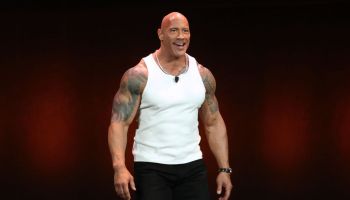To some, it’s merely along the lines of “race-baiting.” To those that understand, Black unemployment highlights a greater problem for the nation, not just a sub-culture of Americans.
We hear it from many throughout America, especially since coming under the direction of the nation’s first African-American president in 2009.
Mentioning anything specifically about the plight of Black people in the United States – from personal insults to instances of racism – is nothing more than another attempt to “race-bait” Americans into guilt through use of the infamous “race card.”
Yet, with another glaring example of the disparities within our nation coming by way of September’s unemployment numbers, we see that not only is “talking Black” a necessity in America today, but addressing the economic issues impacting Black America is imperative to getting our nation back on track economically. Anyone purporting a “one nation, no differences” notion while looking at these numbers and knowing the historic obstacles to advancement only advances political rhetoric that plays well for some but does not play truthfully for all.
Black America’s economic peril is a barometer for urban America, considering that many of our greatest cities have populations that are at least 25% Black. Generally speaking, Americans live in cities, and American cities tend to be heavily influenced by Black culture and Black socioeconomic realities. Getting Black America back to work will get American cities back to full force – and get America revving again.
Therefore, anyone that cares about getting America back on track knows that the Black unemployment numbers are, in many regards, some of the most important numbers to improve upon in the weeks and months ahead.
From science to business, there is a wealth of unfulfilled field of career endeavors that were once filled by underclass Black children that were raised by poor parents to value education and break glass ceilings. Despite Jim Crow, hiring discrimination in northern cities, and threats of economic and physical violence over the years, African-Americans were able to climb to historic heights in a variety of careers. This often happened with in one generation of education, hard work, and gateways to opportunity. Now, at a time when we approach a need for more doctors, nurses, scientists, business leaders, and other workers in a range of occupations in order to keep up with the population shift we are enduring, the void is not being filled by the segment of the population with the most potential to give at this point.
If America is going to remain the economic leader of the global community, the opportunity for growth within Black America – and, subsequently, urban America where a majority of our nation resides – must not remain a trivia fact noted by few pundits and fewer politicians monthly. Young, Black, and urban America is often overlooked as pools of talent by many in corporate and academic America. Yet, young, Black, and urban America provide the richest opportunity for rapid growth and recovery within a generation with the right policies and leadership.
Tax policies that are engineered to stimulate business growth from this point onward must be crafted with a keen eye towards inviting business leaders to procure young, Black and urban talent from high school and college. These students must be taken “under the wing” of these businesses, developed as 21st-century apprentices, and guided towards both personal success and innovation contributions to our nation. This will create a class of diverse, focused, and engaged young people that can utilize their contemporary savvy with new career-enlightening experiences to create pathways that allow us to catch up on the global scale in science, technology, medicine, and business. Tax policies that seek to repatriate business revenue back from foreign shores must ensure that these businesses come back to metropolitan areas so that the oft-forgotten employment and academic segments in urban America have a chance to build careers for themselves, not merely access low-wage jobs. This focus can shift the conversation within many of our communities from increasing minimum wage to a living wage (which, in many regards, is still not suitable for a family in 2013) to a better focus: increasing the number of career pathways available that provide a prosperity wage that is mutually beneficial for employees and businesses alike as the two earn profit growth and business success together.
This shift in policy focus and societal understanding only comes when the double-unemployment ratio between Blacks and Whites in America final becomes a “double black eyes” scenario for the nation and for both sides of the political aisle. This status quo, accepted reality for decades must be a mark of shame that is cleansed from our economic records. Once the historically-discriminated against can make historic gains after this historic recession, we will find America back on track – moving past the domestic tension and international embarrassment we have endured over the past several years.
Sadly, perhaps some of those that don’t get this reality are merely leaving an economic rebound to chance or is just playing the flip side of the race card. Either way, it’s not playing our cards right for a true American recovery.
LENNY MCALLISTER ( @lennymcallister ) is an internationally-recognized political commentator and former congressional candidate that is regularly featured on several national and international outlets including Canada’s Sun News Network, Al Jazeera American, Radio New Zealand and Sirius-XM Radio. His daily podcast “Get Right with Lenny McAllister” can be found 12pm Eastern on www.LennyMcAllister.com. Catch Lenny’s “The McAllister Minute” regularly on The American Urban Radio Network.















